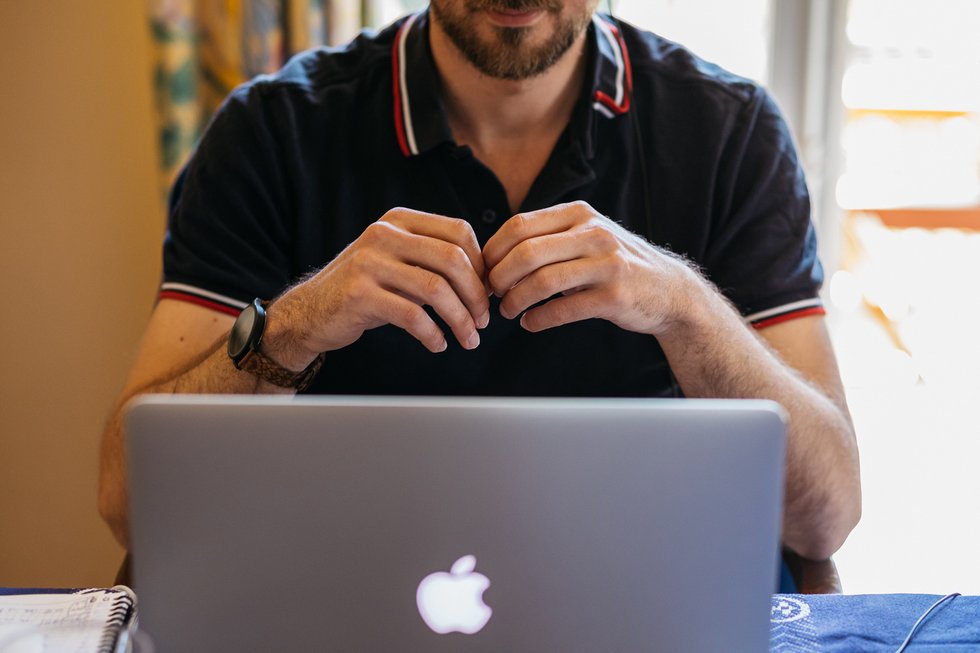8 tips to make decisions in a crisis
20 mai 2020
7min

You left the office quickly the weekend before the lockdown and now you regret not anticipating what was going to happen. Had you known you wouldn’t be able to return for a while, you would have done what your colleague Leo did and taken files and a computer monitor. That might have helped you to avoid neck aches and some professional headaches.
You’re not the only one with thoughts like these. If we’d all had the appropriate information beforehand and the time to prepare, no doubt we would have opted to do things differently. But why are we paralyzed when it comes to making swift decisions during a crisis? And how do we adapt our approach at times like these to maintain foresight and effectiveness?
Making a decision during a crisis: the impact
How decision-making works
When faced with the unknown, our reaction can be rational, emotional, impulsive, or even paralysis. But what about the way you make decisions, especially during a crisis? The mechanisms of decision-making are not that easy to explain, even for the experts.
Choosing v deciding
To start, let’s consider whether choosing and deciding are the same thing. For the philosopher Charles Pépin, who came up with the theory of “the art of the decision”, there exists a real difference between the two terms. “Choosing is based on using rational criteria to arm your decision-making weapon. Deciding is reacting before knowing.” When a situation is complex and it’s difficult to know all the elements involved, it might come down to making a quick decision, while accepting the uncertainty and the risks tied to it. Even in normal circumstances, that requires quite a bit of courage.
There are several models explaining the mechanisms of decision-making:
- The rational model is the most common. It’s step-based decision-making. Once an individual or a group encounters a problem, different solutions must be identified, the solutions must then be evaluated objectively before settling on a choice. The goal of this strategy is to compare the options before deciding on the most advantageous solution. American economist and sociologist Herbert Simon developed a model called “bounded rationality” based on the idea that it is difficult for decision-makers to be completely objective in their choice. They will select the solution that is the most satisfying to them.
- The political model: With this model, decision-makers each have their own interests (or those of their group) to defend. The process then takes the form of a negotiation between decision-makers who defend their positions according to their needs or pet subjects.
- The “intuitive” or “naturalist” model places more emphasis on the role of intuition. Sometimes we make decisions instinctively or intuitively by comparing situations that arise with those we have experienced, thereby speeding up the process. Intuition allows us to find solutions without consciously using logical or analytical reasoning, according to Janet Metcalfe, a doctor of psychology and professor at Columbia University in the United States. Using your intuition is an effective shortcut if used wisely.
So are our decisions truly rational or somewhat emotional? For neurologist and psychologist Antonio Damasio, the two are not mutually exclusive. The American scientist was one of the first to point out the importance of emotions at the core of our decision-making processes.
Decision-making: how is the crisis reshuffling the deck?
What are the characteristics of crises that affect decision-making?
When a crisis occurs, whether it’s economic, health, political, or otherwise, the balance of any system needs to be readjusted, often abruptly. That’s what we’re currently living through during this global pandemic. Take the example of Thomas, a human resource manager, who is in charge of human resource policies for an industrial site with 750 employees on the outskirts of Paris. The Covid-19 pandemic forced him, along with his team, to come up with measures to close the site and get employees working remotely. Making a series of decisions is not easy in these circumstances, particularly given:
- The unprecedented aspect: The crisis has called a halt to “business as usual”. We are not prepared because the situation is new or unprecedented.
- The uncertainty: With a crisis, uncertainty is higher than under normal circumstances. As a result, decision-makers have less tangible evidence at their disposal to make ad hoc decisions.
- The lack of time: During a crisis, there is often less time to decide and reactions have to be quick, not easy.
- The stakes can be high: The consequences of decisions taken during a crisis can be significant from an economic, health, or social point of view. Staff, for example, may be forced into part-time employment or furloughed.
To deal with the crisis, Thomas and his team have had to make decisions quickly, without necessarily having the time to check all the parameters beforehand: “It wasn’t easy to see things clearly as the situation was changing constantly. We would get orders and then counter-orders . . . our instructions from the morning would contradict those in the evening.”
During these kinds of emergencies, when faced with too much information or with uncertainty, people are forced to simplify their mental patterns unconsciously so as to make quick decisions, according to Daniel Kahneman, a doctor of psychology and cognitive psychology, and author of Thinking Fast and Slow. This intuitive mode of operation is, however, more vulnerable to reasoning bias. How then can we make good decisions in such a context?
Crisis: how to optimize your decision-making and avoid drama with your colleagues
1. Start afresh with a common goal
If you want decision-making to be easier, whether for yourself or a group, it’s important to start by identifying the underlying objectives. What is the goal of making the decision? What problem does it need to solve at its core? For Thomas, as an HR manager, starting anew with a common vision is what has allowed him to maintain a good atmosphere and make the right decisions during this pandemic: “It was necessary to understand the meaning of the decisions to be made, that is to say: define an objective, a goal and a context before acting on it.” The format for crisis meetings set up by the company was changed: “There was an agenda and we had to reach a decision by the end each time.” The meetings then became shorter, more efficient, more frequent—and ultimately, more practical.
2. Come up with scenarios and evaluate the risks
In times of crisis, as in normal times, the options must be reviewed so as to reach the best solution. It’s then essential to measure the risks and consequences of each option for the organization. However, situations can evolve quickly and unexpectedly. Thomas had to arrange for everyone to work remotely from last March 17 to limit the risk of contagion, even though his company had prepared a plan to rotate teams on site that would allow it to continue operating without taking risks. The final decision was not part of the initial plan.
3. Stay flexible and responsive
Make plans, yes, but stay flexible and responsive in case things change. The focus of decision-making in times of crisis is managing the unexpected. After all, you can’t plan for every possibility and sometimes you have to change direction swiftly, as Thomas has done in recent days. “At the beginning of the health crisis, we spent a week working on lists to get unemployment benefits for the staff before we realized that the guys weren’t eligible under the specified criteria.” It’s better to stay flexible and keep your nerve when you have to make a U-turn.
4. Manage your emotional reactions
A crisis can quickly become upsetting and, when dealing with your emotions, it’s not always easy to take responsibility for stressful issues. For Thomas, it was an emotional roller-coaster: “At the beginning, I felt like I was in a washing machine. There are stages that are very stimulating and, at the same time, there are stressful and frustrating situations. You work on something and, by the evening, you have to throw it all out.” Since certain times can be stressful to the point of having a physical impact, such as fatigue, irritability, or insomnia, it’s essential to regain control of your emotions so you can make good decisions.
5. Avoid the pitfalls of decision bias
Emotions can hinder decision-making and some reasoning can be influenced by cognitive biases that lead you to make bad decisions. In a crisis, for example, loss aversion bias can push you, when in doubt, to choose the least expensive option; and sunk cost bias can see you sticking with a bad proposition just because you’ve invested a lot in it already. Also common, when you don’t know which option to choose, is compliance bias. For businesses, this could manifest, for example, as the temptation to look at what your neighbors are doing so you can take the same actions, without taking too many risks. While this is an important step, it’s quite complex, so it’s good to be aware of it.
6. Trust your intuition
Using your intuition lets you save time when making decisions. Doesn’t seem very rational to you? Nothing could be further from the truth. Our intuition is linked to our emotional memory of things, a sort of instinctive reaction based on experiences. So there is a place for it in your decision-making. Albert Einstein, for whom intuition was an ally, said: “The intuitive mind is a sacred gift and the rational mind is a faithful servant.”
7. Be careful in your communication with your colleagues
Communication is always important but especially during a crisis. These challenging times should not be seen as an excuse not to inform staff about ongoing negotiations and decisions being made. If your colleagues don’t feel involved, they may be less cooperative in putting into place any decisions reached. “What pays off is communicating well, working together, agreeing on the objectives, reflecting a vision to everyone, giving meaning to what we do, so that no one feels disconnected,” said Thomas, who oversaw the smooth negotiation and unanimous signing of an agreement between HR and staff representatives on emergency measures for the entire company.
8. Move forward – even if it means fixing decisions later
Since it’s not possible in crises to have control over all the variables, you have to decide to keep moving forward, even if it means changing strategy several times. Finding the balance between waiting to get a better understanding of the situation and blindly moving ahead is not always easy. What distinguishes good decision-makers is often their ability to make ad hoc decisions – and then to question those decisions later to work out if there are better options. Crisis or no crisis, decision-making involves arbitration that is a bit dizzying and fraught with responsibility. It is worth accepting that it is best to let go and recognize that there is no such thing as a perfect solution.
Crises put not only your ability to make decisions to the test but also your ability to adapt. When faced with too much, too little, or contradictory information, you may have to let go a little and accept the uncertainty and the risks involved in making decisions. It’s best to keep the ultimate goal in mind and come up with a response that will give the best result in the long term.
Translated by Kalin Linsberg
Photo: Welcome to the Jungle
Follow Welcome to the Jungle on Facebook, LinkedIn, and Instagram, and subscribe to our newsletter to get our latest articles every day!

Inspirez-vous davantage sur : Productivité

How productive are you, really? Unlocking productivity in the workplace
How does the traditional 8-hour workday measure up to actual productivity levels?
03 avr. 2024

Ego depletion: The more decisions you make, the worse they become!
Digital demands and information overload are at an all-time high, making decision fatigue a critical challenge impacting productivity and well-being.
27 mars 2024

Say goodbye to your to-do list and hello to the ‘did’ list
Wave goodbye to the overwhelming to-do list and welcome the empowering 'did' list into your daily routine.
27 mars 2024

Should you secretly use AI at work?
Policies surrounding AI usage at work are becoming more and more popular—but some workers are choosing to ignore them.
19 févr. 2024

I tried splitting my day into fun and boring tasks. Here’s what happened…
Some experts suggest balancing enjoyable and difficult tasks is a shortcut to workplace happiness. Here’s how it worked out for our reporter…
28 juin 2023
La newsletter qui fait le taf
Envie de ne louper aucun de nos articles ? Une fois par semaine, des histoires, des jobs et des conseils dans votre boite mail.

Vous êtes à la recherche d’une nouvelle opportunité ?
Plus de 200 000 candidats ont trouvé un emploi sur Welcome to the Jungle.
Explorer les jobs
